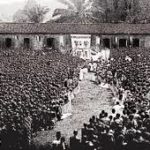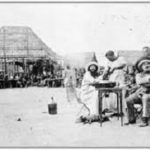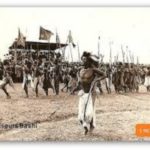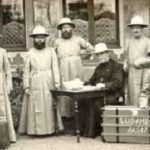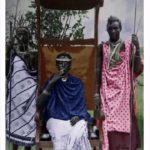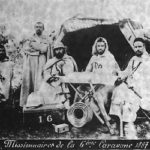Rights In Land
Cultivation and cattle-rearing formed the basis of the Rwanda subsistence economy. Rights in land related to both cultivation and grazing. While pasture rights excluded cultivation, cultivation rights did not exclude grazing on farmland after the harvest. Maquet and S Nayigiziki…
The Socio-Economic Complex
In the previous chapter we have analysed the political system in Rwanda. The king clearly occupied a centralposition in the political structure. For the maintenance of his court and his army, for the execution of his orders and for support…
The Complex Pattern Of The Political System In Ancient Rwanda
The complex pattern of the political system resulted partly from the large number of office-holders and their stratification in hierarchical ranking and partly from duplication of certain offices and the overlapping and interlocking of the two structures. In dealing with…
The System Of Delegated Power And Social Cohesion
We have noted that the total body of office-holders within the administration and army structures were largely drawn from lineages related to the king. However within this limited sphere of recruitment, access to individual office was largely through achievement, in…
Ideological framework and social cohesion.
⦁ An ideology has been defined as: “a more or less coherent system of beliefs held in common by the members of a group or collectivity and which, through an interpretive evaluation (weber) of the situation in which the group…
The Delegated Power Within The Political System
In the previous section we have analysed the Rwanda political system as it existed at the court. The system through which the king delegated his powers must be seen as an extension of the royal power, particularly as the kinghad…
The Central Court: Myth Of Origin II
The Queen Mother Although the Mwami’s powers were absolute he shared his prerogatives with the queen mother. She ruled with the king, had her own court and her own personal clients on Ibikingi land. She had her own herds and…
The Central Court: Myth Of Orgin I
(a) The Mwami The first King of Rwanda, Nkuba, lived in heaven with his wife Nyagasani, their two sons Kigwa and Tutsi and their daughter Nyampundu. One day the three siblings fell rom heaven and settled on a hill in…
Marriage and affinal ties
Marriage and affinal ties In all areas the wives retained membership of their own lineage and became adopted members of the husbandts household. In cases of ritual obligation, as for instance after childbirth, a wife had to go to the…
The White Fathers’ Mission in Rwanda II
An Overview II It seems likely that lineages from the Singa, Sindi, Zigaba, Gesera, Banda, Cyaba and Ungura clans, through a combination of land ownership and ritual expertise, managed to impose themselves on settlers from diverse clans to form small…


